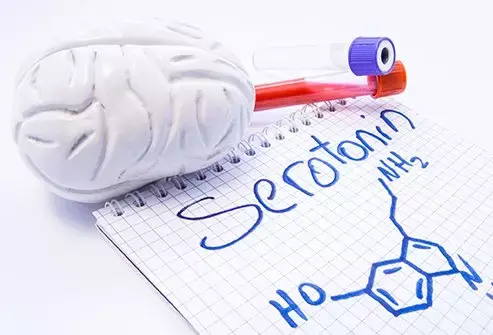- Home
- Medical news & Guidelines
- Anesthesiology
- Cardiology and CTVS
- Critical Care
- Dentistry
- Dermatology
- Diabetes and Endocrinology
- ENT
- Gastroenterology
- Medicine
- Nephrology
- Neurology
- Obstretics-Gynaecology
- Oncology
- Ophthalmology
- Orthopaedics
- Pediatrics-Neonatology
- Psychiatry
- Pulmonology
- Radiology
- Surgery
- Urology
- Laboratory Medicine
- Diet
- Nursing
- Paramedical
- Physiotherapy
- Health news
- Fact Check
- Bone Health Fact Check
- Brain Health Fact Check
- Cancer Related Fact Check
- Child Care Fact Check
- Dental and oral health fact check
- Diabetes and metabolic health fact check
- Diet and Nutrition Fact Check
- Eye and ENT Care Fact Check
- Fitness fact check
- Gut health fact check
- Heart health fact check
- Kidney health fact check
- Medical education fact check
- Men's health fact check
- Respiratory fact check
- Skin and hair care fact check
- Vaccine and Immunization fact check
- Women's health fact check
- AYUSH
- State News
- Andaman and Nicobar Islands
- Andhra Pradesh
- Arunachal Pradesh
- Assam
- Bihar
- Chandigarh
- Chattisgarh
- Dadra and Nagar Haveli
- Daman and Diu
- Delhi
- Goa
- Gujarat
- Haryana
- Himachal Pradesh
- Jammu & Kashmir
- Jharkhand
- Karnataka
- Kerala
- Ladakh
- Lakshadweep
- Madhya Pradesh
- Maharashtra
- Manipur
- Meghalaya
- Mizoram
- Nagaland
- Odisha
- Puducherry
- Punjab
- Rajasthan
- Sikkim
- Tamil Nadu
- Telangana
- Tripura
- Uttar Pradesh
- Uttrakhand
- West Bengal
- Medical Education
- Industry
Postnatal SSRI Treatment may improve Outcomes for Maternal Mental Health

Up to the fifth postpartum year, postnatal depression was linked to worse outcomes for mothers and children, says an article published in the Journal of American Medical Association.
Despite selective serotonin reuptake inhibitors (SSRIs) are advised for the treatment of postnatal depression, there isn't enough information on the long-term effects of SSRI therapy on mothers and children. In order to determine if postnatal SSRI medication affected postnatal depression-related mother and child outcomes across early childhood years, Chaoyu Liu and colleagues conducted this study.
The Norwegian Mother, Father, and Child Cohort research provided the longitudinal data for this cohort research. From 1999 to 2008, pregnant participants were sought out between weeks 17 to 18 and prospectively followed up with following delivery. Analysis of the data was done between December 2021 and October 2022. An Edinburgh Postnatal Depression Scale score of seven or above was required for postnatal depression diagnosis (a binary indication of treatment eligibility). At the sixth postpartum month, the Hopkins Symptom Checklist was employed as a continuous indication of and postnatal depression symptomology. Using self-reported data at postpartum month 6, postnatal SSRI therapy was discovered.
From pregnancy through the fifth postpartum year, maternal outcomes included self-reported depressive symptoms and relationship satisfaction. Mothers' reports of internalizing and externalizing issues, indications of attention-deficit/hyperactivity disorder, and motor and linguistic development at ages 1.5, 3, and 5 were included as the child outcomes. To account for prenatal elements linked to the likelihood of postnatal SSRI exposure, a propensity score adjustment approach was applied.
The key findings of this study were:
A total of 61 081 mother-child pairs were examined, and 8671 (14.2%) of them had postnatal depression.
Of them, 177 (2.0%) had undergone SSRI therapy. A variety of poor outcomes for mothers and children were linked to more severe postnatal depression symptoms.
Analyses that were limited to postnatal depression dyads revealed that postnatal SSRI therapy reduced the unfavorable correlations between postnatal depression and mother relationship satisfaction at postpartum months 6, years 1.5, and 3, as well as for child ADHD at age 5.
Up to five years after childbirth, postnatal SSRI therapy reduced the unfavorable correlations between postnatal depression and maternal depression, partner relationship satisfaction, child externalizing issues, and attention-deficit/hyperactivity disorder.
Reference:
Liu, C., Ystrom, E., & McAdams, T. A. (2023). Long-Term Maternal and Child Outcomes Following Postnatal SSRI Treatment. In JAMA Network Open (Vol. 6, Issue 8, p. e2331270). American Medical Association (AMA). https://doi.org/10.1001/jamanetworkopen.2023.31270
Neuroscience Masters graduate
Jacinthlyn Sylvia, a Neuroscience Master's graduate from Chennai has worked extensively in deciphering the neurobiology of cognition and motor control in aging. She also has spread-out exposure to Neurosurgery from her Bachelor’s. She is currently involved in active Neuro-Oncology research. She is an upcoming neuroscientist with a fiery passion for writing. Her news cover at Medical Dialogues feature recent discoveries and updates from the healthcare and biomedical research fields. She can be reached at editorial@medicaldialogues.in
Dr Kamal Kant Kohli-MBBS, DTCD- a chest specialist with more than 30 years of practice and a flair for writing clinical articles, Dr Kamal Kant Kohli joined Medical Dialogues as a Chief Editor of Medical News. Besides writing articles, as an editor, he proofreads and verifies all the medical content published on Medical Dialogues including those coming from journals, studies,medical conferences,guidelines etc. Email: drkohli@medicaldialogues.in. Contact no. 011-43720751


